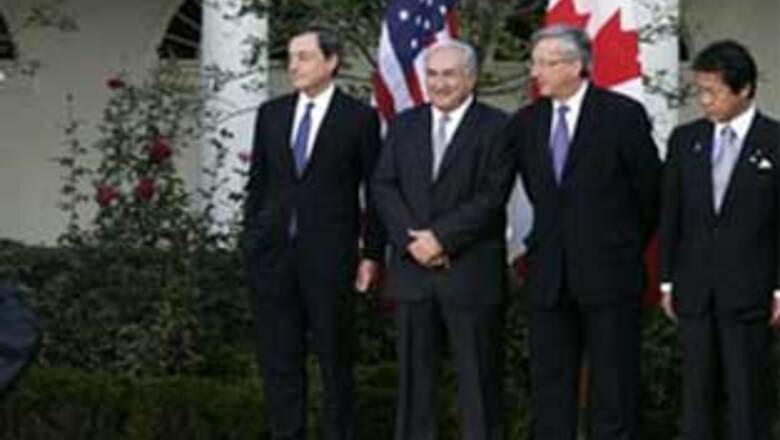
views
Rome: Finance ministers and central bankers from the Group of Seven (G7) most-industrialised nations ended talks on Saturday with a pledge to re-establish confidence in the stricken global financial system and to stimulate a worldwide economic recovery.
A concluding statement after the gathering in Rome also renewed a commitment to avoid protectionist measures.
"An open system of global trade and investment is indispensable for global prosperity," the statement said.
Ahead of the talks - which marked the first international appearance of new US Treasury Secretary, Timothy Geithner - European leaders had voiced concern over protectionism.
US President Barack Obama's administration's proposed economic stimulus package includes a controversial "Buy American" clause.
Geithner said he had briefed his G7 counterparts from Japan, Germany, France, Britain, Italy and Canada, on Washington's plans to get the US economy back on track.
The measures "must be implemented in a way consistent with our international obligations," Geithner told a news conference after the meeting.
He was referring to commitments made by the United States and other World Trade Organization (WTO) member nations to refrain from raising new trade barriers.
Italian Economy Minister Giulio Tremonti, whose country holds the current G7/G8 presidency, said he thought protectionism remains a danger "not only for those nations like Italy whose economies are based on exports."
"But for now the 'Buy this and Buy that' remain political slogans," Tremonti said, adding he believed the WTO agreement provided, "for now," a guarantee against protectionism.
With the severe economic downturn "expected to persist through most of 2009" G7 members said they wished to prioritize measures to strengthen the crisis-ridden banking sector.
"We need to make banks strong enough so that they can be supportive of economic recovery," Geithner said.
These measures, participants agreed, would also require the establishment of regulatory and oversight mechanisms to prevent a repeat of the banking crisis, which most analysts say is at the root of the current downturn.
G7 finance ministers have asked their deputies, in consultation with partners from emerging economies, to prepare by July a progress report on an "agreed set of common principles and standards of propriety, integrity and transparency of international economic and financial activity," the statement said.
The G7 ministers did not identify a body that would eventually take on the task of introducing new norms and regulations and providing oversight over their implementation.
However, they agreed that a "reformed International Monetary Fund (IMF), endowed with additional resources is crucial to respond effectively and flexibly with the current crisis."
Germany, for its part, would "take part, if required" in providing financial support to the IMF, German Finance Minister Peer Steinbrueck said.
The Rome meeting came ahead of April's Group of 20 (G20) summit in London - which includes representatives from nations with emerging economies.
G7 participants Saturday stressed the important role of such emerging countries such as China, India and Brazil in safeguarding international financial stability and economic growth.
In particular, they welcomed "China's fiscal measures and continued commitment to move to a more flexible exchange rate."
This the G7 statement suggested, would lead to a rise in the value of China's renminbi currency and, in making exports to the Asian giant cheaper, "help promote more balanced growth in China and in the world economy."




















Comments
0 comment